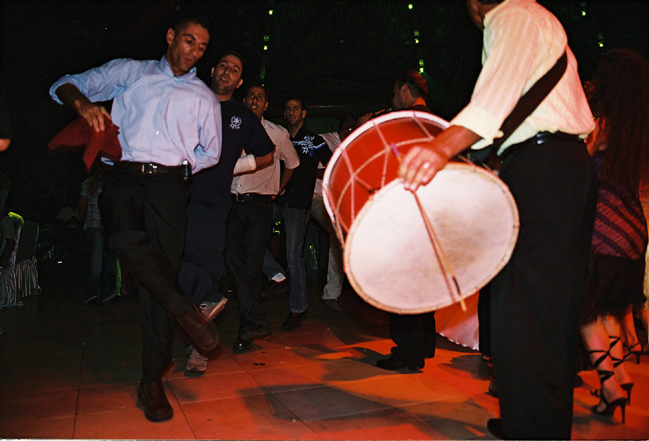Kurdish Jews, said to be the descendants of the Ten Tribes of Israel who were exiled in 723 BCE. to the area known today as Kurdistan, located in Northern Iraq, Iran and Eastern Turkey. They continued to live there as a separate entity until their immigration to Israel in the 1950s. The Kurdish Jews of today show a much greater affinity to their fellow Jews elsewhere than to the Kurdish Muslims.
(Source: The Jerusalem Post Newspaper)
The residents of southern Kurdistan, Halabja, Sulaymaniyah, Hewler, Akre and Zakho can still point out where it used to be the Jewish quarters and finding old synagogues and graveyards.
In Amadya, residents recently argued over where the Jewish graveyard had been even though a centuries-old Jewish community had departed just decades earlier.
(http://www.washingtoninstitute.org/templateC06.php?CID=589)
Unlike Jerusalem's Kurdish Jews, who speak Aramaic at home and Hebrew outside, their compatriots who settled in other parts of Israel use Aramaic in all facets of their daily lives.
In Israel, the Kurdish immigrants and their descendants have kept alive the cultural heritage of Jewish Kurdistan through their distinctive cuisine, music, and traditions. The most significant celebration that is unique to the Kurdish Jews is the Seharane
(http://www.yaleisraeljournal.com/spr2005/goodman.php)
The Saharane is the major annual Kurdish cultural event in Israel with 6 000- 7 000 participants every year and takes place in northern Israel near Lake Kinneret.
The word Saharene must come from the Kurdish word "sayeran", which means "to see, and to explore nature". In this context, the word "Saharane" may also mean "excursion" in Kurdish.
This is the traditional national event of the Kurdish-Jewish community, celebrated at different times during the year. Originally, the Saharene was a seven-day festival that marked the close of winter and the beginning of spring in Kurdistan.
For more information contact e.g. info@kurdishjewry.org.il
 The Saharane festival
The Saharane festivalThe author Izzat Zaki says that the Nestorian Christians describe themselves as "the children of Israel" and claim they are the remnant of the Ten Lost Tribes. Zaki contends that they do not marry outside their religious faith and live in the most defensible mountainous regions of Kurdistan. Zaki quotes them as saying, "we use Aramaic just like the Jews."
(http://www.ekurd.net/mismas/articles/misc2005/4/kurdisrael1.htm)
(http://www.ekurd.net/mismas/articles/misc2005/4/kurdisrael1.htm)
The creator of this movie is Jan Jonroy from Zaxo in southern Kurdistan.
Kurdish dishes of Jews who returned from Kurdistan






1 comment:
Slaw brayani aziz,
Zor zor dastan xosh bet.
God Bless Kurdistan and Israel and protect them from all bad evils.
Down to fascist regimes of Arabs, Turks and Iranians.
Long live Kurdistan and Israel.
Niaz,
nbaziani@hotmail.com
South Australia 19/01/2008
Post a Comment